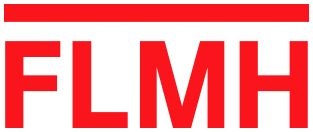Once more, we travel to Dohuk in Iraqi Kurdistan. Our task: to produce a video that portrays the social work in the refugee camp “Karbato 1”.
Karbato 1 is a camp for internally displaced people. Currently, 14,000 people live here. Most of them are Yazidis from the Sinjar Mountains, who fled the genocide by ISIS in 2014.
People in Karbato 1 live in tents – 3,000 tents. There’s a school, a hospital ward, a police force, and a fire brigade. Convenience stores and supermarkets can be found as well.
The social center is the place to go for residents.
We film with Avivan, the young woman (she is not 30 yet) who has been managing the social center for three years. Her team consists of seven permanent employees and around 70 volunteers. Her social center is an important point of contact for the residents.
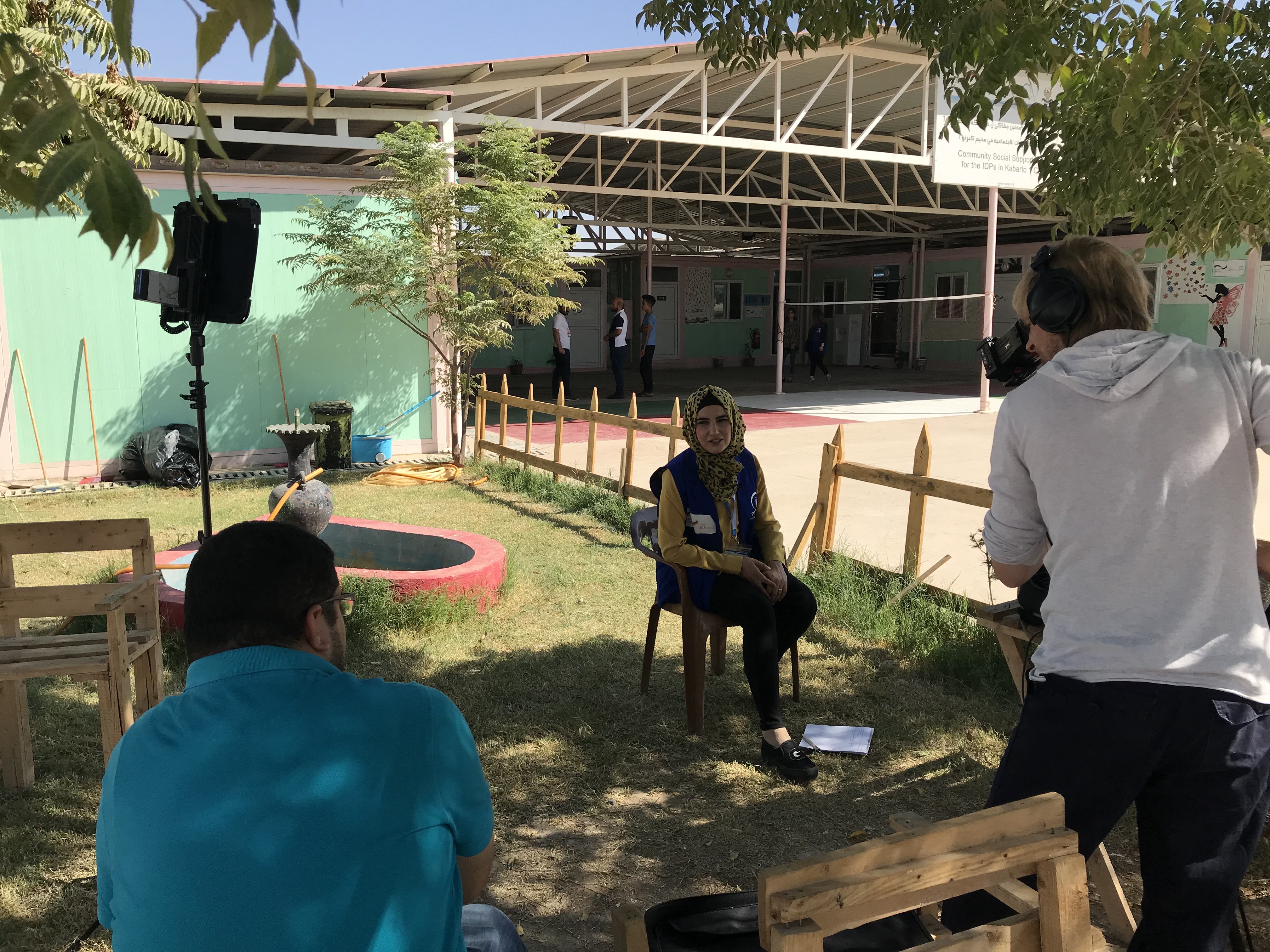
The residents have survived ISIS attacking their villages. But this does not mean they have not been harmed – many of them were forced to watch how the troops kidnapped, murdered, and raped their loved ones. They had to rush from their homes, leaving behind all their belongings. Many of them walked all the way to the camp.
Since then, for more than three years, they have been living in one-room-tents. Kitchen and lavatories are shared. Space is limited and privacy rare. Most tents’ interiors consists of little more than the thin mattresses people sleep on. Those who own a TV are considered lucky.
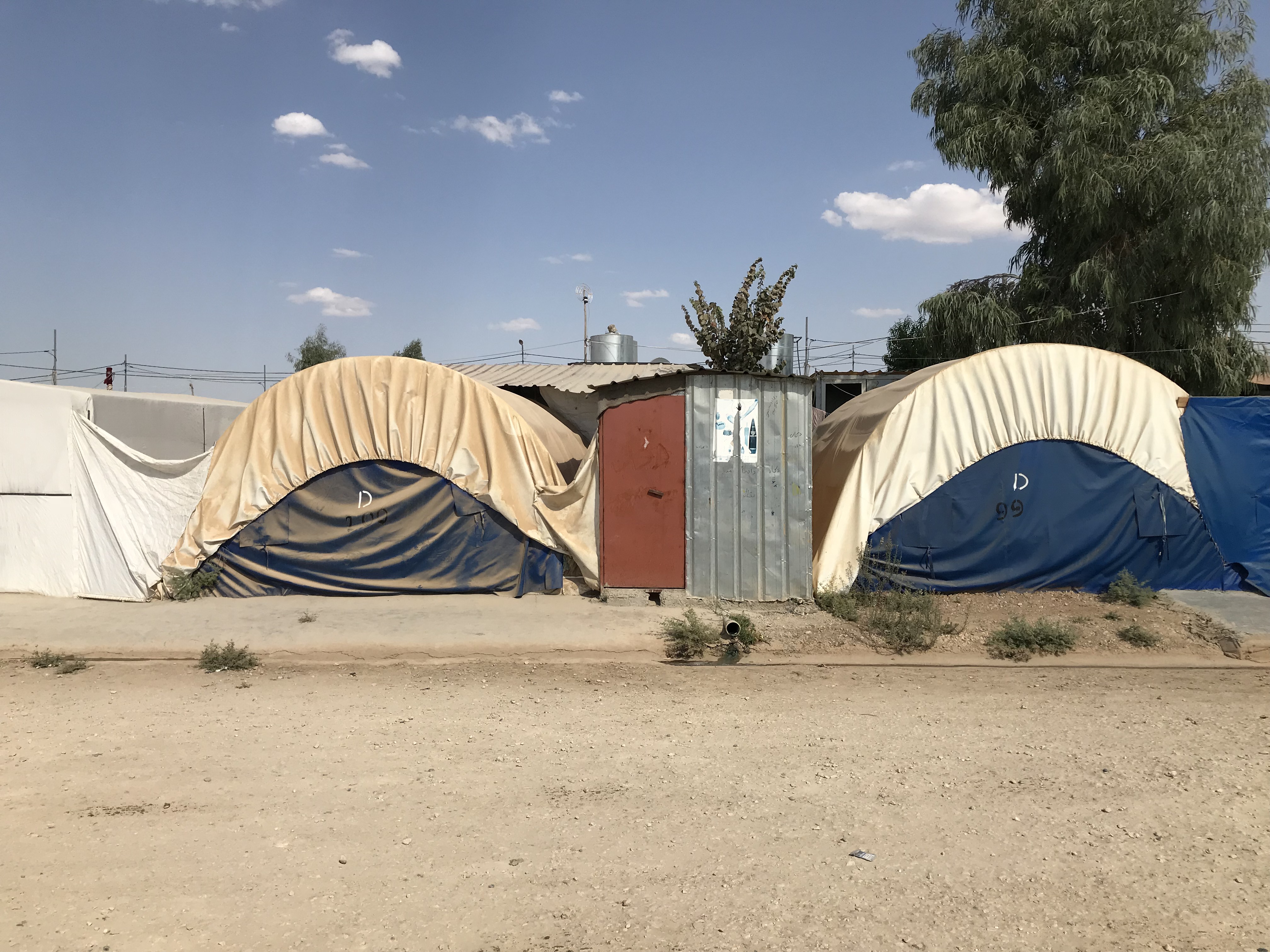
There’s nothing to do, and there are no jobs.
No employment opportunities means no opportunities to earn some money. Hardly anyone can afford additional food, electricity, or kerosene for heating. And this is in a region, where temperatures drop below freezing in winter. Summer is not that much more comfortable, with temperatures over 40°C.
For the Yazidis, there is no way back home – not in the foreseeable future at least. Their homes have been either destroyed or occupied. Moreover, the region is still not secure. In some places, fighting is still going on.
In the face of this desperate situation, how do you keep the residents from going insane? Avivan and her colleagues are working on answers to this question day after day. Coming up with activities and with something meaningful to do – especially for women and children – is essential in this regard.
The activities at the social center – more than pastime.
The activities include sports, a sewing workshop, English classes, and training courses for hair dressers. There are consulting services and seminars on various topics, ranging from conflict management to parenting.
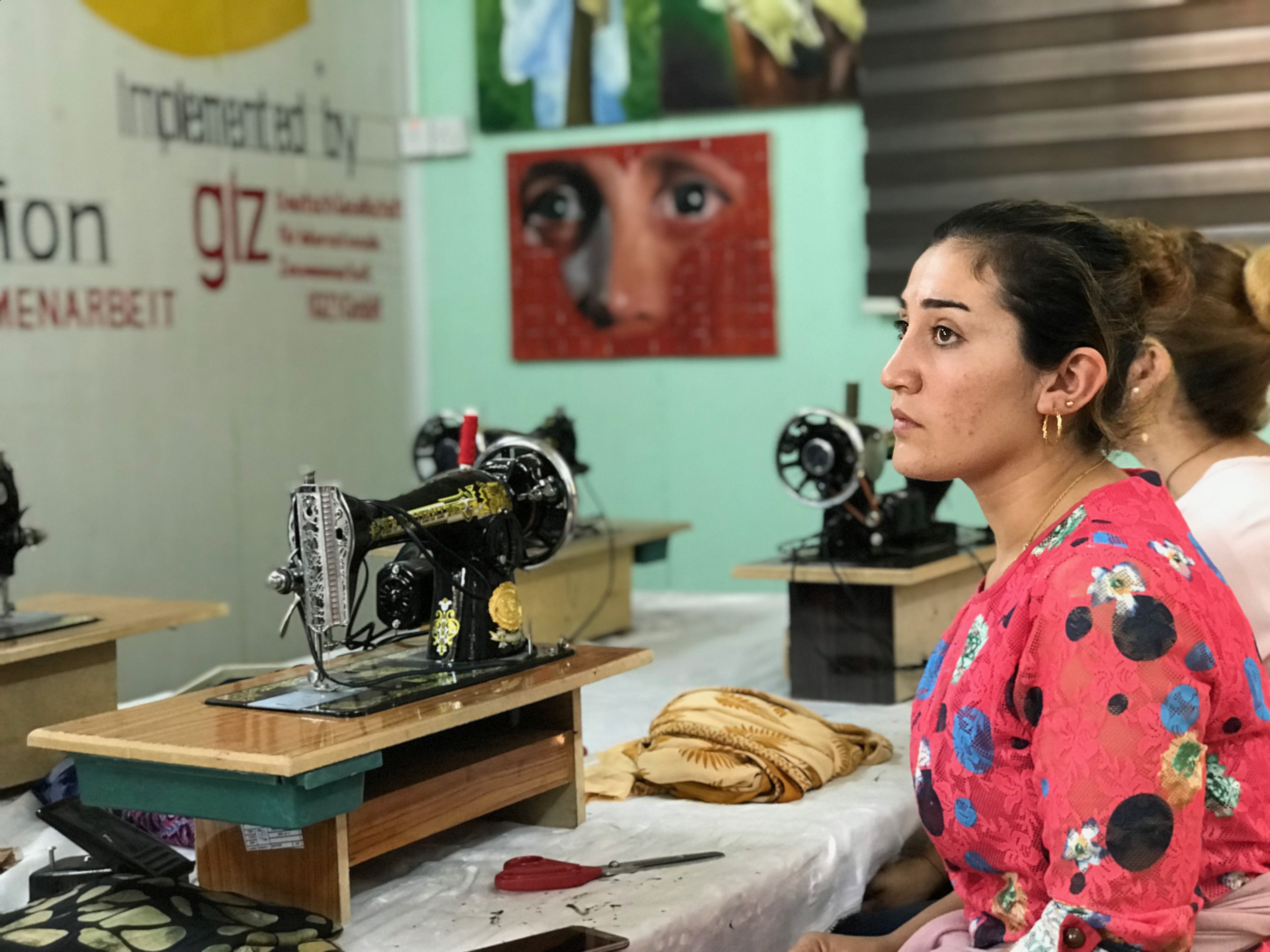
We notice a seminar entitled “The effects of smoking”. Having in mind the daily hardships in the camps, we are a little surprised by this choice of topics at first. This feeling is diminished when, during a walk around camp later on, we continue to see parents handing cigarettes to their children – just like candy. Children smoking hookah is a common sights as well.
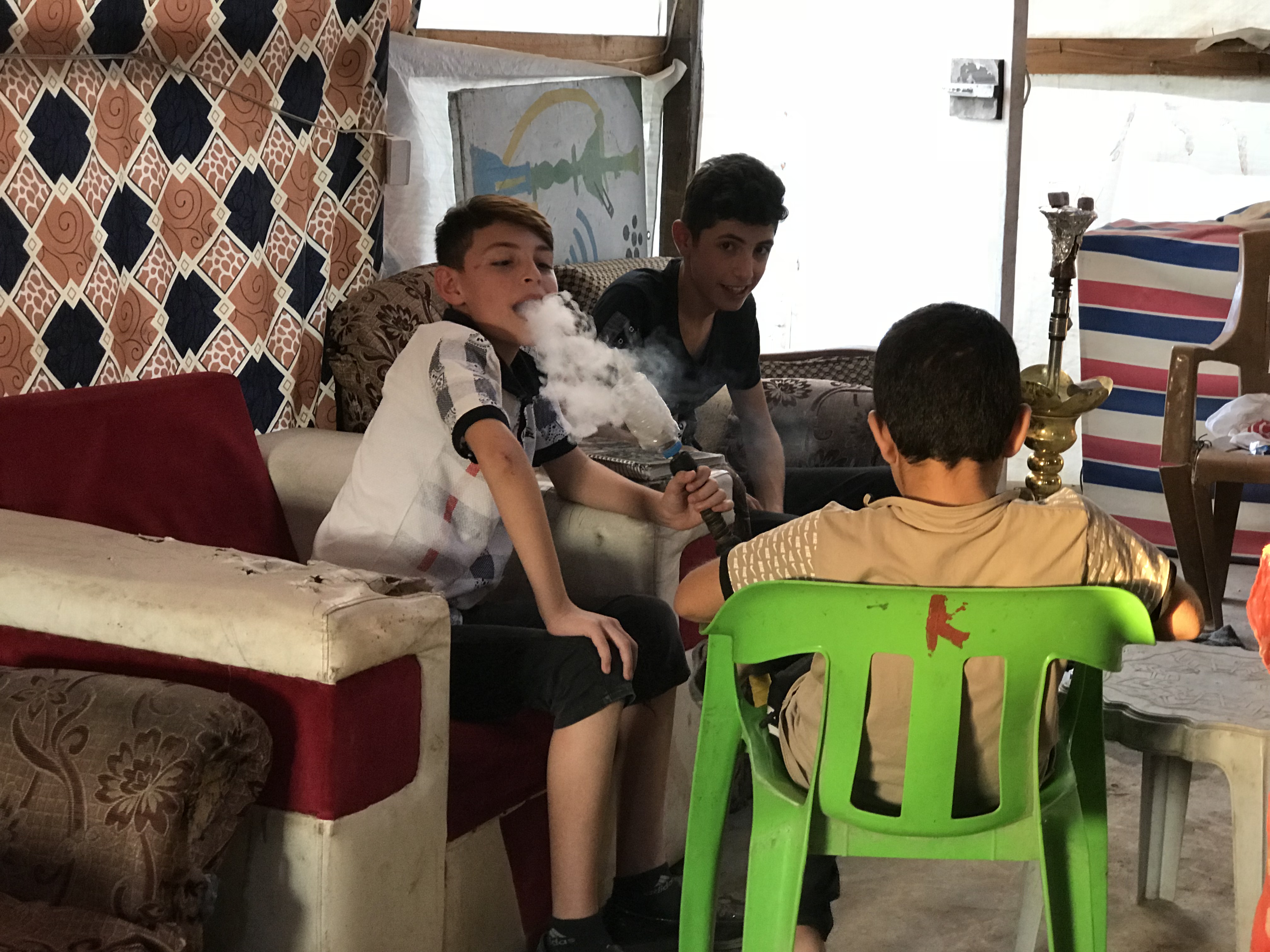
Violence against women is a major problem in the camp too. Hardly any women take measures against their abusive husbands – knowing that, without their husbands, they will be left with no rights or financial securities. This is another reason why the courses offered by the social center are so important: they teach women the skills they need to earn their own money.
These are only two examples the work of Avivan and her team – of how they make residents’ lives a little more bearable each day. Sadly, the center’s funding is not secured. The funding by the GIZ will end this year. Who’s going to care about the residents’ lives then?
